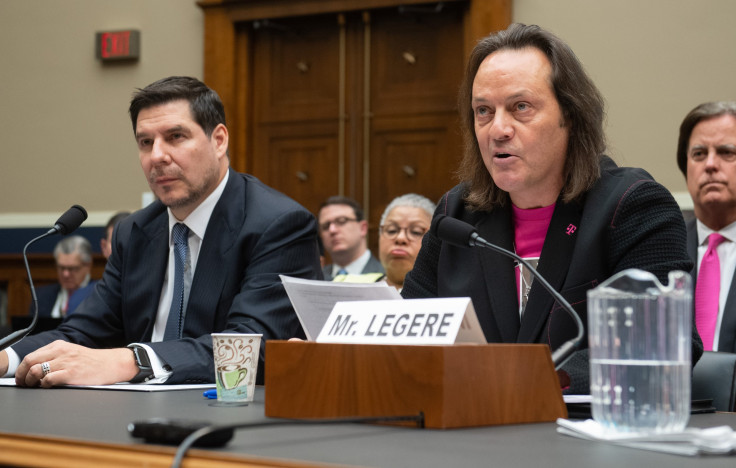DOJ Could Approve Sprint, T-Mobile Merger If Companies Create New Carrier

Latest in the Sprint T-Mobile merger news is that merger approval can get a nod if the condition proposed by the Justice Department is agreed upon. That is all about floating a fourth carrier.
According to a Bloomberg report, the main objection against the proposed merger between T-Mobile and Sprint has been the shrinking space of competition and the number of companies reducing from the existing four to just three.
When the number of major U.S. wireless carriers gets reduced to three from the merger, there is fear, it would eventually hurt consumers in terms of bloated bills and costly services.
To address that issue, the Department of Justice asked the two carriers to “lay the groundwork” for a new carrier as a pre-condition to obtaining potential approval for their merger.
FCC convinced about merger pitch but DoJ is not
In early May both parties agreed on “enforceable” deadlines for 5G expansion to the satisfaction of FCC chairman Ajit Pai, who said he could think of supporting the merger deal.
Sprint also agreed that it is ready to sell Boost Mobile if the deal is approved.
The Bloomberg report underlines that even if T-Mobile and Sprint become successful in gaining FCC’s blessing, those terms will be hard to influence Justice Department’s antitrust chief, Makan Delrahim.
The antitrust chief has strong reservations over the dwindling number of competitors. His suggestion to float another carrier is to maintain at least four players in the fray if the deal gets a thumbs up.
The weakening of New T Mobile?
A new spinoff can happen only by bunching together a portion of the assets and spectrum of T-Mobile and Sprint. The report has no details on the reaction of the two carriers to this idea or any methodology thereof.
Conceptually that solution defeats the core argument T-Mobile and Sprint have pitched in the merger deal. Their offer was to create a larger entity that can stand up to entrenched players Verizon Wireless and AT&T to reduce prices for the end consumers.
But the risk involved in giving away spectrum and network resources for making a new national carrier would weaken the proposed “New T-Mobile” that the two companies have jointly envisaged.
T-Mobile and Sprint had also assured that the merger would hasten deployment of 5G technology across the United States in the next few years.
But critics doubt that promise and the claim that T-Mobile and Sprint will jointly embed 97 percent of the US with 5G in three years.
The new solution on the table reflects the way FCC and Justice Department evaluate mergers. They follow different standards in making decisions even while working together.
While the FCC looks at a deal from a public interest perspective, the Justice Department views a deal from the angle of competition and how it affects consumers.
The media report said discussions between the carriers and the DoJ are continuing. Both T-Mobile CEO John Legere and Sprint CEO Marcelo Claure have been meeting the Justice Department officials and the final word on the new suggestion is not yet known.
© Copyright IBTimes 2025. All rights reserved.





















